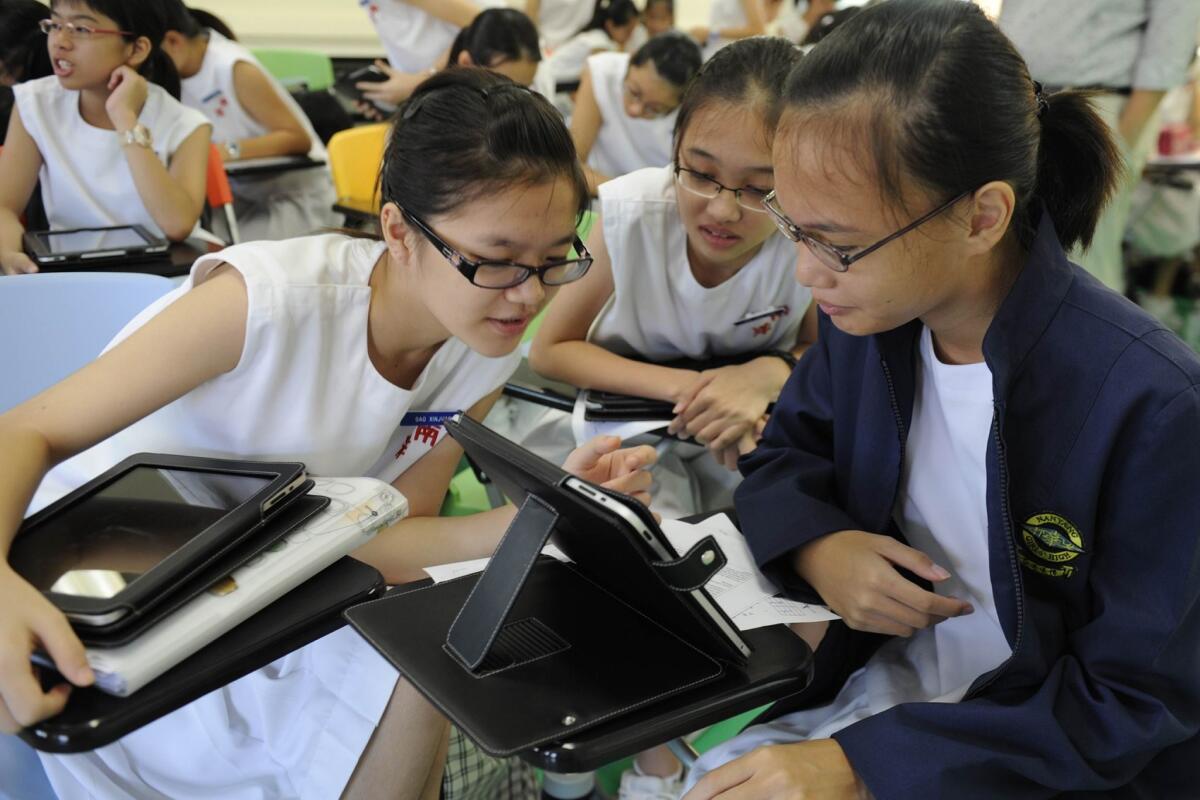American students trail East Asians, most Europeans in reading

American teenagers read at a level below that of most of their European and Asian counterparts, according to a global education survey released Tuesday.
The Programme for International Student Assessment tests youths around the world on reading, math and science. More than half a million students, ages 15 and 16, took the two-hour test last year. The test was administered in 60 countries.
Students in Shanghai and Singapore scored the highest, and well above their American counterparts in all subjects. Americans scored slightly lower than German, Irish and British students did in reading. The lowest reading scores were in Albania, Qatar, Indonesia and Peru.
The Washington Post’s foreign staff prepared a map and extensive analysis of the data.
“While much of the coverage focuses on the gap between the United States and other developed countries, looking at the results on a map drives home that it’s not quite as bad as it sounds,” the Washington Post wrote. “The U.S. and a number of other Western countries are clustered fairly closely together. It sounds bad to say that the U.S. is ranked five places behind France; it sounds less bad when you look at the data and see that the average U.S. and French total scores [across all subjects] are 1476 and 1499, respectively. That’s pretty similar.”
The study is conducted by the Paris-based Organization for Economic Cooperation and Development. While U.S. students scored near the global average in reading, they were 36th in mathematics, performing well below the global average.
Andreas Schleicher of the Organization for Economic Cooperation and Development told CNN that students in China and Shanghai do better because they feel hard work is rewarded, and that they can find the teachers to help them.
“In China and Shanghai, you have nine out of 10 students telling you, ‘It depends on me. If I invest the effort, my teachers are going to help me to be successful’,” Schleicher said.
ALSO:
Black Friday at the little library that could
Amazon demonstrates drone delivery service
NaNoWriMo results: 42,008 new novels written in November
More to Read
Sign up for our Book Club newsletter
Get the latest news, events and more from the Los Angeles Times Book Club, and help us get L.A. reading and talking.
You may occasionally receive promotional content from the Los Angeles Times.







